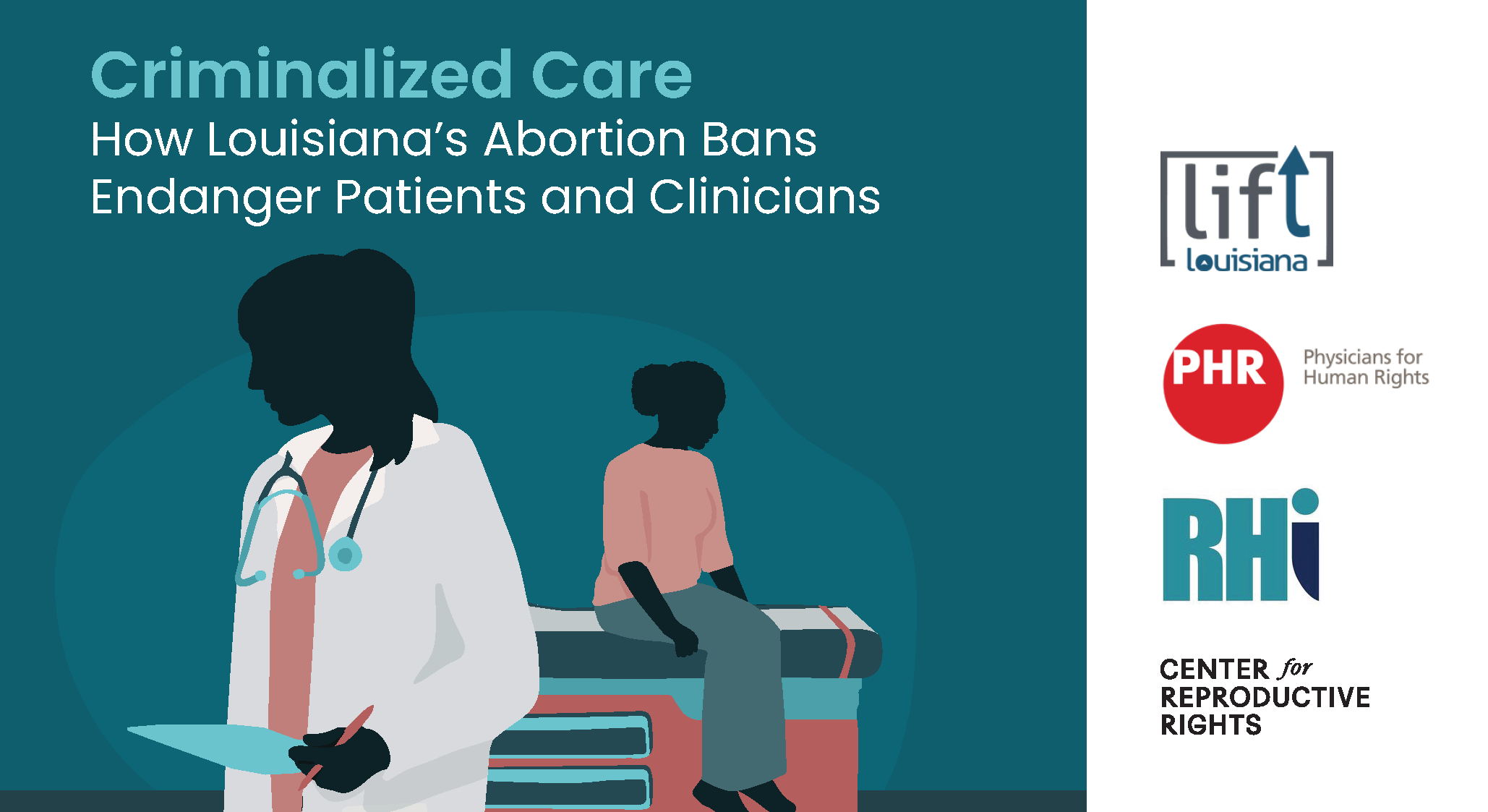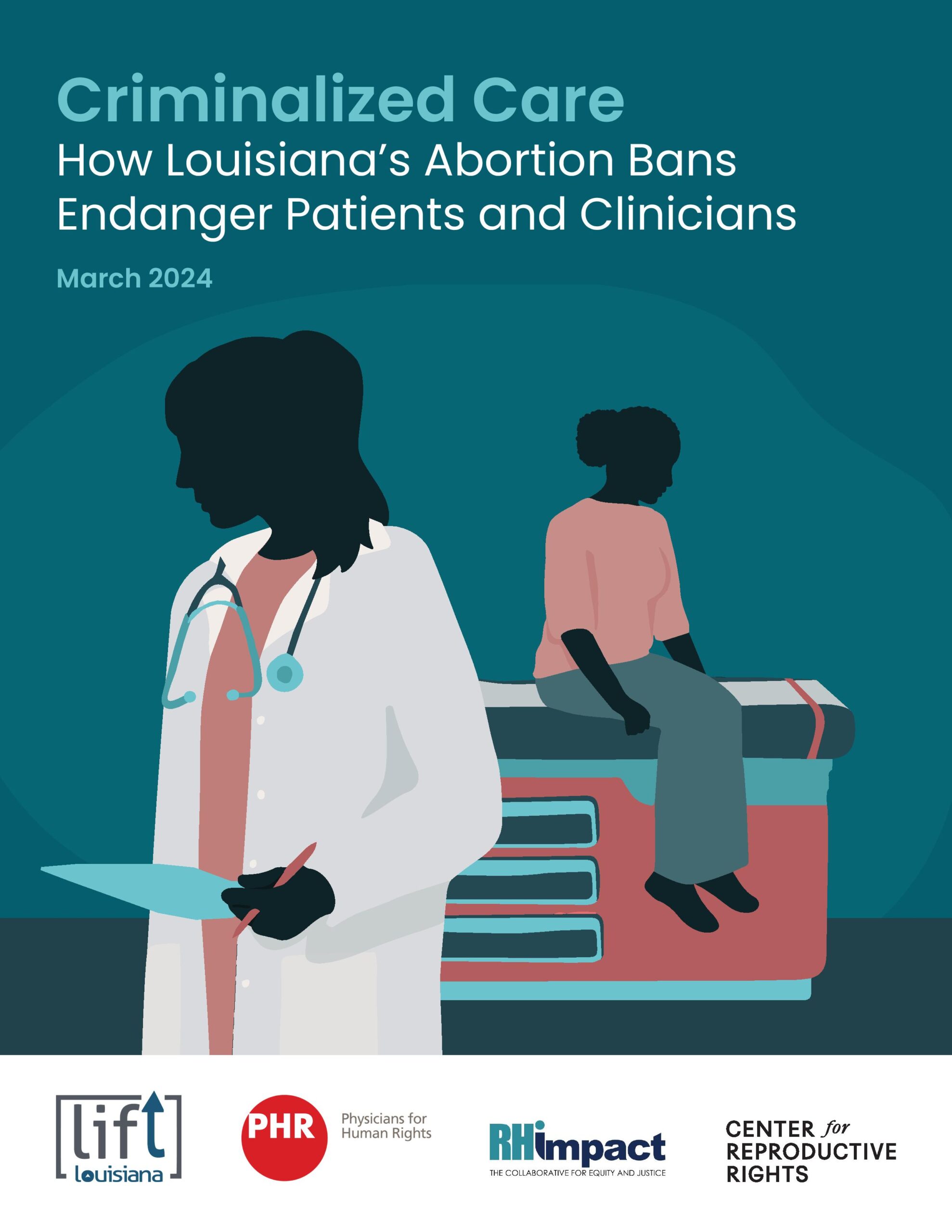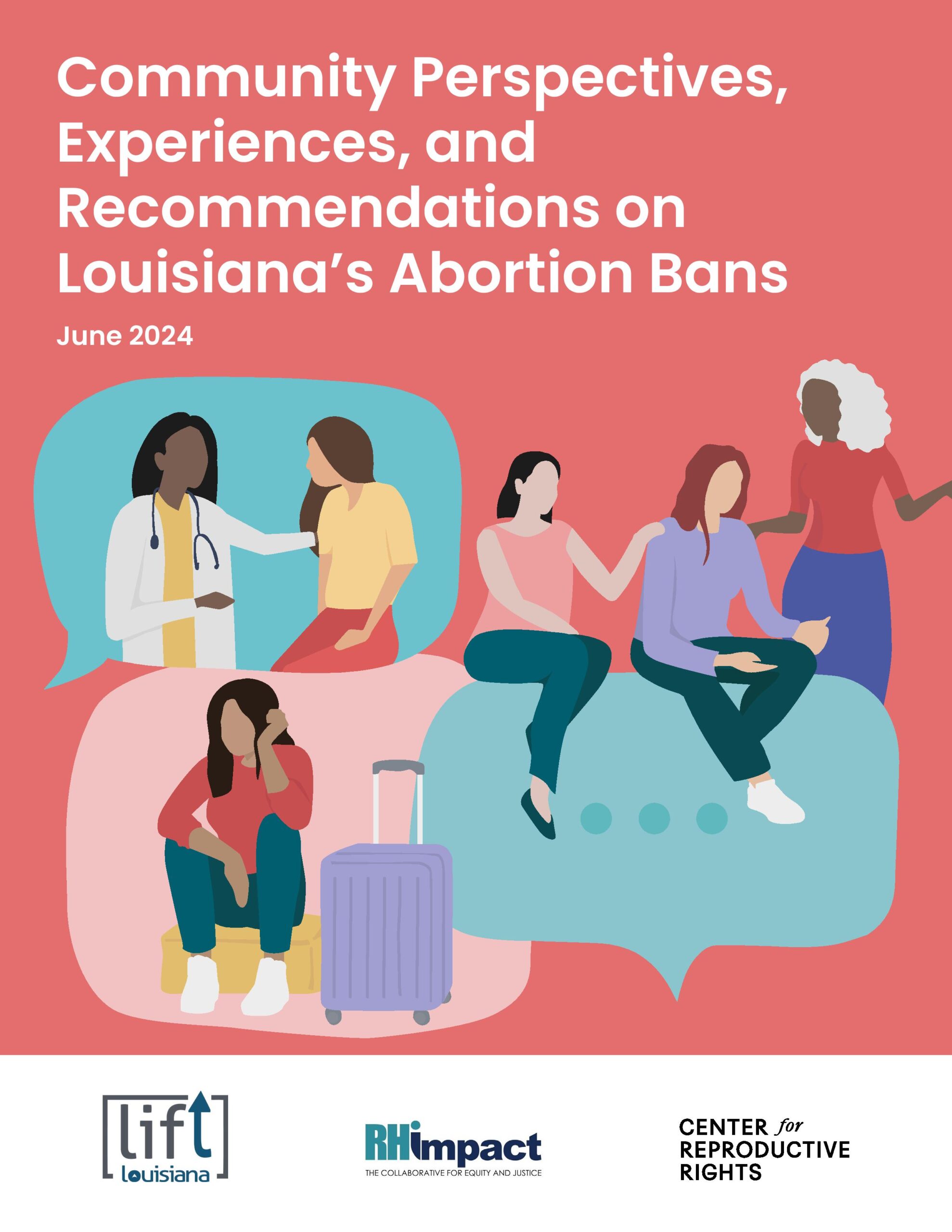Criminalized Care: How Louisiana’s Abortion Bans Endanger Patients and Clinicians
Fact-finding reports by Lift Louisiana, Physicians for Human Rights, Reproductive Health Impact, and the Center for Reproductive Rights.
To gauge the on-the-ground human rights impacts of escalating attacks on reproductive rights and bodily autonomy in Louisiana, Lift Louisiana, Physicians for Human Rights, Reproductive Health Impact, and the Center for Reproductive Rights conducted extensive fact finding in the state. Research teams conducted dozens of in-depth interviews with Louisiana clinicians and patients and held focus group discussions with community-based organizations involved in reproductive health care access in the state.
The findings contained in the report, Criminalized Care: How Louisiana’s Abortion Bans Endanger Patients and Clinicians, are alarming: the research shows how Louisiana’s abortion bans violate federal law meant to protect patient access to emergency care, disregard evidence-based public health guidance, degrade long-standing medical ethical standards, and, worst of all, deny basic human rights to Louisianans seeking reproductive health care in their state.
The bans’ narrow and ill-defined exceptions create confusion, uncertainty, and fear for both pregnant patients and clinicians, who face significant professional, civil, and criminal penalties for providing the patient-centered and compassionate care they were trained for and could legally offer before Roe v. Wade was overturned.
This research revealed that Louisiana’s abortion bans erode clinician’s ability to use their best medical judgment to treat patients, cause delays and denials of abortion care, postpone prenatal care, and create dual loyalty for clinicians who must navigate their duty to patients and fear of criminalization. The report’s findings also underscore how the bans disproportionately harm historically marginalized communities and groups in the state.
Based on these findings, Criminalized Care: How Louisiana’s Abortion Bans Endanger Patients and Clinicians outlines specific recommendations to state and federal governments, Louisiana hospitals and health care professionals, medical associations, and international human rights mechanisms on how to address these harms.
Community Perspectives, Experiences, and Recommendations on Louisiana’s Abortion Bans
In March 2024, Reproductive Health Impact, Lift Louisiana, the Center for Reproductive Rights, and Physicians for Human Rights published findings from a months-long fact-finding project in Louisiana to document the human rights impacts of the state’s escalating attacks on reproductive rights and autonomy. Criminalized Care: How Louisiana’s Abortion Bans Endanger Patients and Clinicians showed how the bans erode clinicians’ ability to use their best medical judgment to treat patients, cause delays and denials of abortion care, postpone prenatal care, and disproportionately harm marginalized communities.
To capture the full impact of Louisiana’s abortion bans on people seeking access to, as well as organizations advocating for, full spectrum reproductive health care, Reproductive Health Impact, Lift Louisiana, and the Center released a new report, Community Perspectives, Experiences, and Recommendations on Louisiana’s Abortion Bans. The findings in this study draw from interviews with representatives from community-based organizations (CBOs) and Louisianans of reproductive age and are meant to complement those in Criminalized Care.
The findings in this report demonstrate that:
-
individuals are aware of and strongly oppose Louisiana’s abortion bans;
-
the abortion bans have had harmful impacts, particularly on marginalized groups;
-
CBOs are working to get information and resources to communities in need; and
-
individuals and CBOs want people in power to listen to those impacted by the bans to understand their harms.
The findings also reinforce the human rights analysis in Criminalized Care, affirming that Louisiana’s abortion bans disregard the U.S. international human rights obligations to protect reproductive health and autonomy. The report includes a conceptual model that details the pervasiveness of human rights failures demonstrated in the implementation of Louisiana’s abortion bans, particularly on Black women and people with the capacity to become pregnant.
Individuals and CBOs shared what they need to fully exercise their bodily and reproductive autonomy and help their communities to do the same. Based on these needs and findings, Community Perspectives, Experiences, and Recommendations on Louisiana’s Abortion Bans makes recommendations to the Louisiana State Legislature and to funders who aim to support communities in the state.



